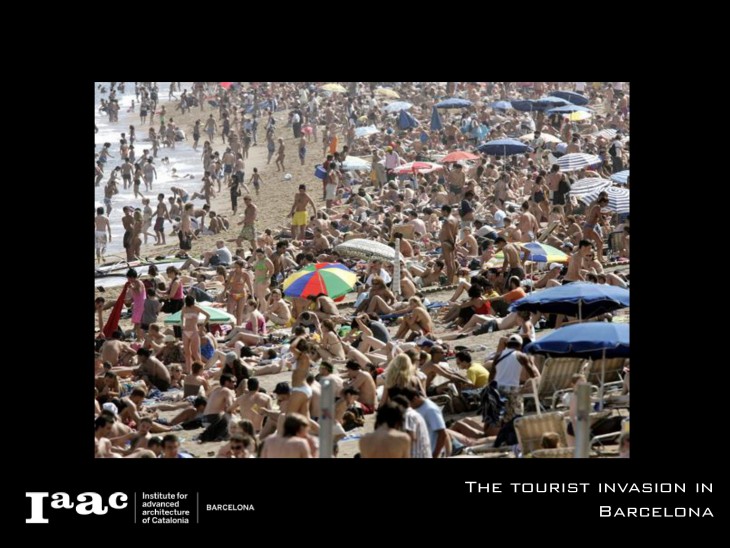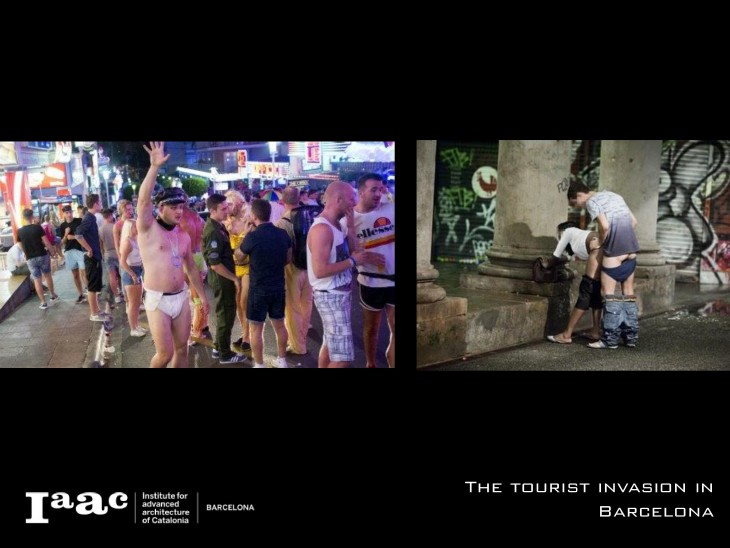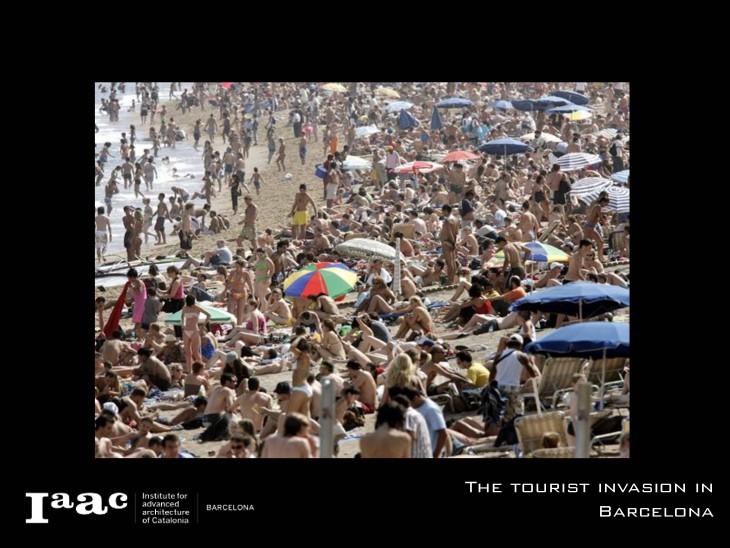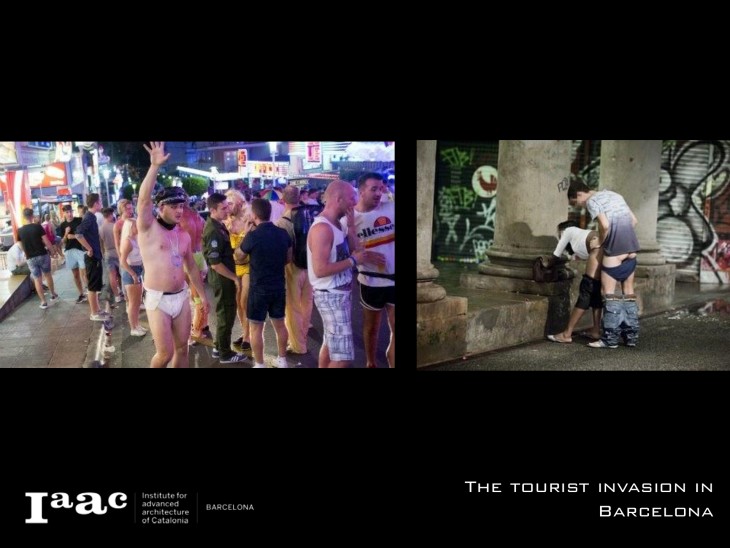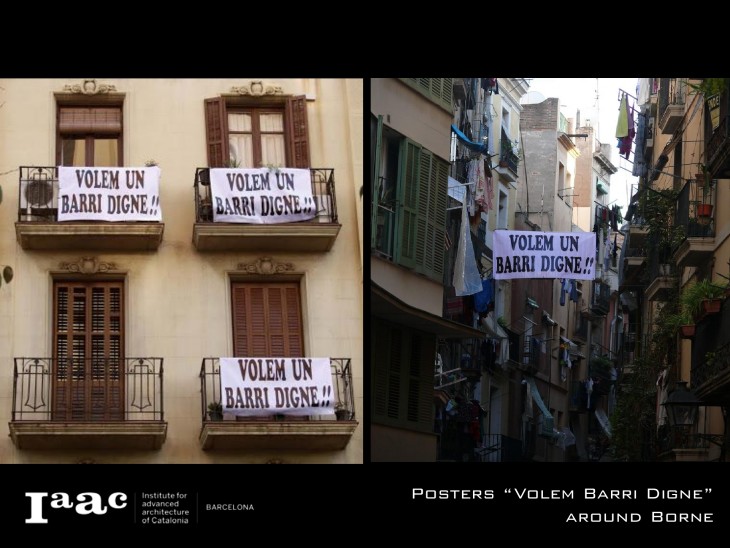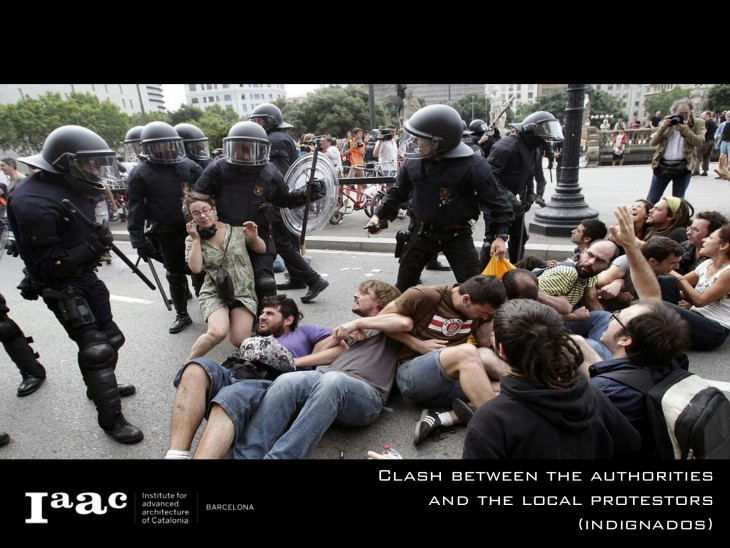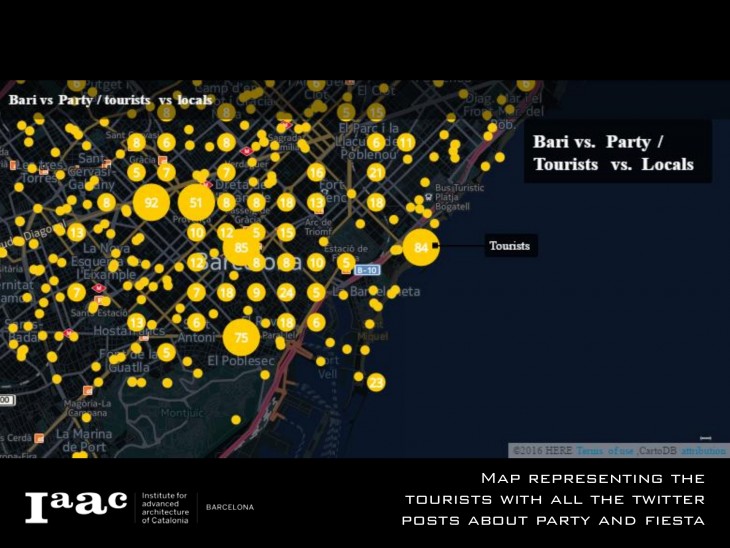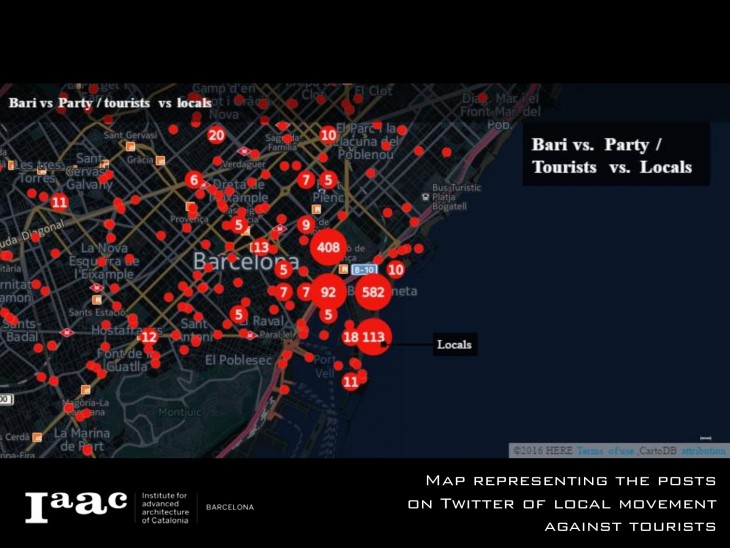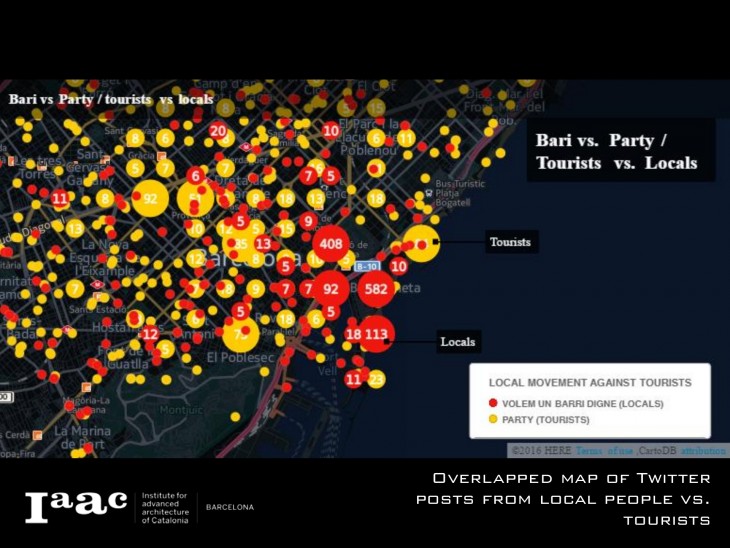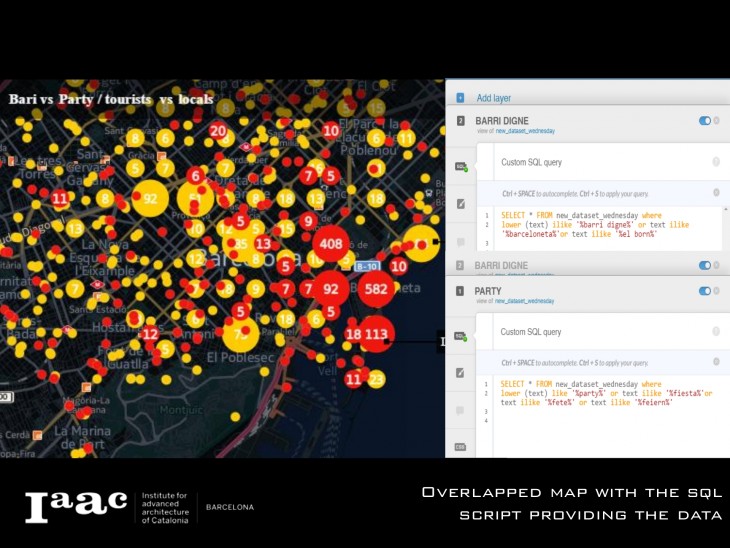We are analyzing the relationship between commercialization for cheap tourism and the “Indignados” movement throughout different areas of Barcelona. We have filtered and visualized Tweet posts according to key words, that would identify content related to mass tourism and local initiatives such as “Volem Barri digne” and “Cap pis touristic”
In order to counter gentrification and the commercialization of middle and lower class residential districts, we propose interventions in public spaces that would encourage locals to reclaim streets and placas as active living spaces that bind the community together and create a sense of local identity by establishing contacts between residents. Simple recreational facilities such as playgrounds, football pitches, ping pong tables, open cooking stations, fountains and community gardens have the potential, if designed in a functional and aesthetically pleasing manner, to revitalize public life within neighborhoods and increase residents sense of self-actualization by creating a more lively and pleasant environment for them to interact in. Since the provision of such amenities does not target tourists or foreign investors, it is a viable and realistic strategy for ‘upgrading’ urban spaces without contributing to factors of gentrification such as upscale developments and significant increases in real estate prices which ultimately lead to the displacement of poorer sections of society and a loss of a neighborhoods authenticity for the sake of commercial profit. Spaces that provide the opportunity for locals to establish or strengthen relationships and express themselves creatively (through public art or community gardens), will foster a sense of responsibility for the urban environment among them. Businesses providing goods and services required by residents would benefit from such circumstances, which will promote the development of local ‘micro economy’ without catering to or relying primarily on tourism. Many of these socio-economic goals can be attained through physical interventions and do not require legislative action. In some cases, they may even be able to bypass legislation economic developments which commonly trigger gentrification and its adverse effects on low income members of society.
